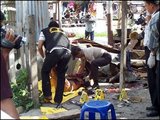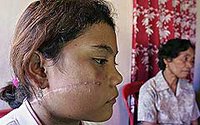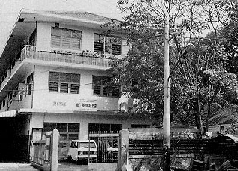 CIJERUK, Indonesia -- Search and rescue workers raced Friday to reach victims of landslides that buried several Indonesian villages beneath tons of mud and rocks, but hopes of finding survivors were fading. More than 210 people were missing or feared dead.
CIJERUK, Indonesia -- Search and rescue workers raced Friday to reach victims of landslides that buried several Indonesian villages beneath tons of mud and rocks, but hopes of finding survivors were fading. More than 210 people were missing or feared dead.Relatives looked on anxiously as bodies were pulled from the rubble days after pounding rain on the main island of Java unleashed landslides in Cijeruk and Jember, divided by hundreds of kilometers of mountainous terrain.
So far 149 corpses have been found, many of them bloated or decayed, and rescuers said they may have to halt their search in the next 24 hours.
President Susilo Bambang Yudhoyono met with thousands of people left homeless by the disaster in Jember, stopping to talk to grieving mothers and children, and promising government assistance in rebuilding schools, bridges and roads.
"Let us pray for our brothers and sisters who perished and for those who lost their loved ones," he said.
Many were resigned to the fact that few of the missing would be found alive.
Niti Turmadi, 40, said her sister Hisah was going to the market when the mud, trees and rocks plowed down the hill flanking Cijeruk just before daybreak Wednesday, sweeping away everything in its path.
"She has not returned," said Turmadi, waiting with dozens of other grieving relatives beneath a blue tent that was erected next to a small mosque, as the dead were delivered one by one.
"I am quite sure her body will be found, so I'll keep waiting," she said.
Heavy tropical downpours cause dozens of landslides and flash floods each year in Indonesia, where millions of people live in mountainous regions and near fertile flood plains close to rivers.
So far 108 bodies have been found in Jember and another 41 have been recovered in Cijeruk. Dozens of people remain unaccounted for. (AP)




